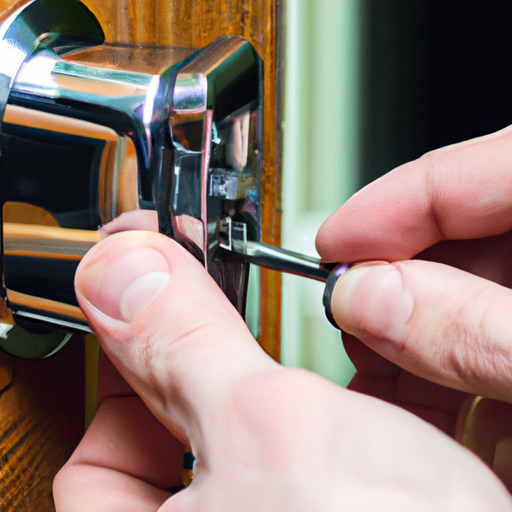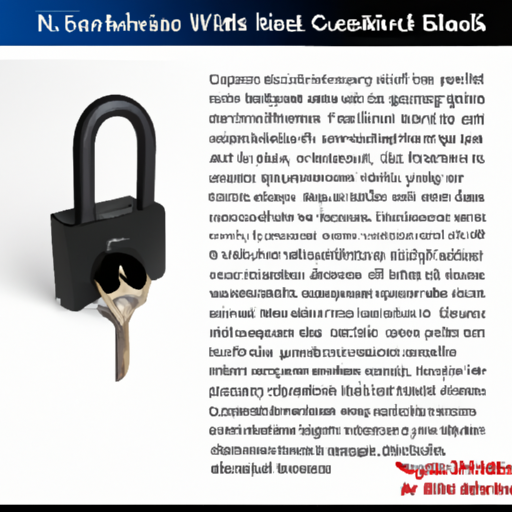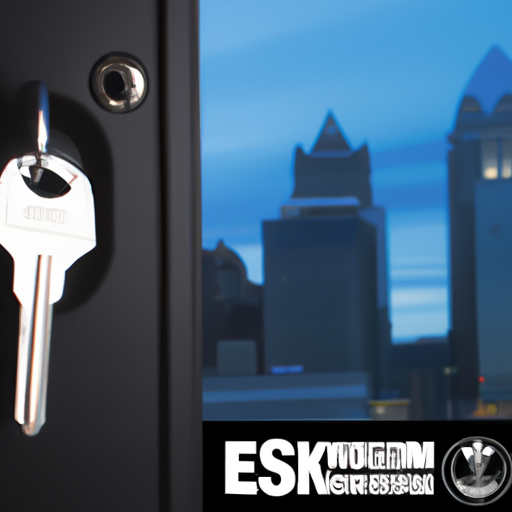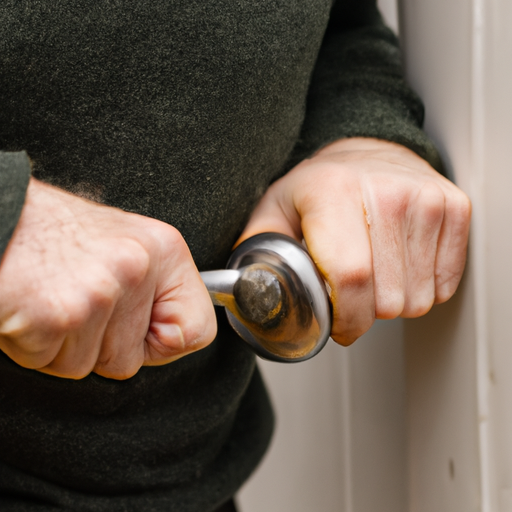
in a few simple steps? In this article, we will guide you through the process of installing a new lock in Charleston. You will learn about the tools and materials you’ll need, as well as the step-by-step instructions to ensure a successful installation. Whether you’re replacing an old lock or installing a new one for added security, we’ve got you covered. So, let’s get started and make your home or property safer with a new lock in Charleston! Installing a new lock in your home can provide greater security and peace of mind. Whether you’ve recently moved to Charleston or simply want to upgrade your locks, this guide will walk you through the process of installing a new lock in your home. By following these steps, you’ll be able to enhance the safety of your property and ensure the well-being of your loved ones.
Preparing for the lock installation
Before you begin installing a new lock, there are a few preliminary steps you will need to take in order to ensure a successful installation.
Inspecting the current lock
Start by inspecting the current lock on your door. Look for any signs of wear and tear or damage that may affect the installation process. Make note of the type of lock you currently have, as well as any specific issues you need to address.
Gathering the necessary tools
Next, gather the necessary tools for the installation. You will typically need a screwdriver, a tape measure, a chisel, a hammer, and the new lock hardware. Ensure that you have all the tools readily available before starting the installation to avoid unnecessary interruptions.
Measuring the door and lock
Carefully measure your door and the dimensions of your current lock. This will help you choose the right lock size and ensure a proper fit. Pay attention to the backset measurement, which is the distance from the edge of the door to the center of the lock cylinder. This measurement is crucial in selecting the correct lock.
Removing the old lock
Before you can install a new lock, you must remove the old one. Start by unscrewing any screws keeping the lock in place. Once the screws are removed, you can take out the lockset, latch, and strike plate. Keep the old hardware nearby in case you need to refer to it later.
Choosing the right lock
Now that you have prepared for the installation, it’s time to choose the right lock for your door. There are several factors to consider when making this decision.
Understanding different lock types
There are various types of locks available on the market, including deadbolts, knob locks, and lever locks. Each type has its own advantages and disadvantages. Deadbolts, for example, offer higher security compared to knob locks and are recommended for external doors.
Considering security features
When choosing a lock, it’s important to consider the security features it offers. Look for locks that are resistant to picking, drilling, and bumping. Additionally, locks with reinforced strike plates and longer screws provide an added layer of security.
Matching the lock to the door
Ensure that the lock you choose is compatible with your door. Consider the door material, thickness, and style when selecting a lock. Some locks may require additional modifications or adjustments to fit certain doors, so it’s important to choose a lock that matches your specific door type.
Exploring keyless options
Keyless entry systems have gained popularity in recent years due to their convenience and security benefits. If you’re interested in a keyless option, consider installing a smart lock that can be controlled remotely through a smartphone or keypad.
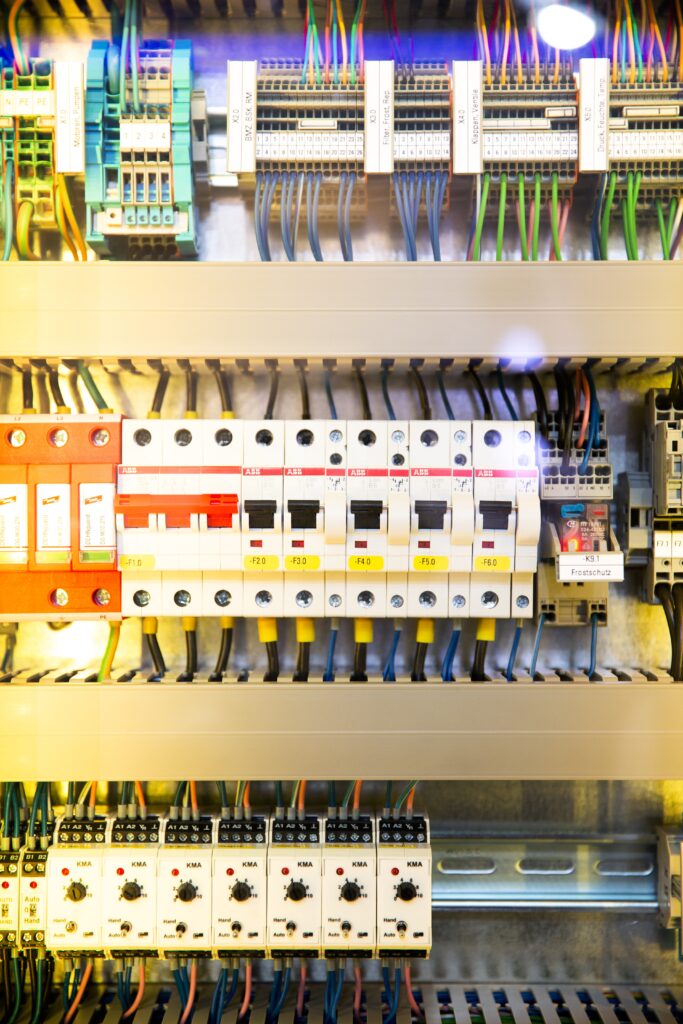
Installing the new lock
With the right lock chosen, it’s time to install it onto your door. Follow these steps to ensure a successful installation.
Positioning the new lock
Start by positioning the new lock on the door. Use a tape measure to ensure that the lock is positioned correctly, with the backset measurement matching the previous lock. Mark the areas where the lock’s screws will be inserted.
Attaching the lock components
Once you’ve positioned the lock, attach the lockset and latch to the door. Use the screws provided with the lock to secure these components in place. Make sure that the lockset and latch are aligned properly and level with the door.
Aligning the strike plate
The strike plate is an important component of the lock that attaches to the door jamb. It helps to secure the door when it is closed. Align the strike plate with the latch, ensuring that it is centered and level with the latch. Mark the screw holes and use a chisel to create the necessary recess for the strike plate.
Testing the functionality
After installing the new lock, test its functionality. Ensure that the latch smoothly engages with the strike plate and that the lock operates correctly. Test the lock from both the inside and outside of the door to ensure it works properly from all angles.
Dealing with common installation challenges
While installing a new lock is generally a straightforward process, there are some common challenges you may encounter. Here are a few solutions to help you overcome these challenges.
Adjusting door and frame
If your door or frame is not aligned properly, it may cause difficulties during the installation process. In such cases, you may need to adjust the door or frame to ensure a proper fit. This may involve adding shims or adjusting the hinges.
Dealing with misalignment issues
Misalignment issues can occur when the new lock does not align properly with the existing holes in the door. To resolve this, you may need to enlarge the holes or use a chisel to create new recesses. Take your time and work carefully to avoid damaging the door.
Resolving problems with bolt alignment
Sometimes, the bolt of the new lock may not align properly with the existing strike plate or hole in the jamb. In such cases, you may need to make adjustments by enlarging the hole or creating a new one. This will ensure that the bolt slides smoothly into the strike plate when the door is closed.
Troubleshooting lock operation
If the lock is not operating smoothly or if there are issues with the key turning, it may be due to misalignment or improper installation. Double-check the alignment of the lock components and make any necessary adjustments to ensure smooth operation.

Enhancing lock security
Installing a new lock is a great opportunity to enhance the overall security of your home. Consider the following measures to further improve the safety of your property.
Adding additional security measures
In addition to installing a new lock, you can further enhance your security by adding additional measures such as security cameras, door reinforcements, or alarm systems. These measures provide an added layer of protection and can deter potential intruders.
Using reinforced strike plates
Consider using reinforced strike plates to strengthen the area around the lock. These plates are made of heavy-duty metal and help to prevent forced entry or door kick-ins. Reinforced strike plates are a cost-effective way to add extra security to your doors.
Upgrading to high-security locks
If you live in an area with a higher crime rate or want extra peace of mind, consider upgrading to high-security locks. These locks are specifically designed to withstand advanced picking, drilling, and bumping techniques. While they may be more expensive, high-security locks provide superior protection.
Implementing smart lock technology
Smart locks offer advanced security features and convenience. With a smart lock, you can lock and unlock your door remotely, receive notifications of any activity at your door, and even grant access to visitors remotely. Consider implementing smart lock technology for enhanced security and ease of use.
Maintaining and troubleshooting the lock
Once you have installed your new lock, it’s important to maintain it properly to ensure its longevity and functionality. Follow these tips for regular maintenance and troubleshooting.
Performing regular maintenance
Perform regular maintenance on your lock to keep it in excellent condition. Clean the lock and lubricate it with a silicone-based lubricant at least once a year. This will prevent rusting and ensure smooth operation.
Cleaning and lubricating the lock
To clean the lock, use a soft cloth and mild detergent to remove any dirt or debris. After cleaning, apply a silicone-based lubricant to the moving parts of the lock. Avoid using oil-based lubricants as they can attract dirt and cause buildup.
Addressing stuck or malfunctioning locks
If your lock becomes stuck or starts to malfunction, there may be an issue with the internal components. Try cleaning the lock and lubricating it to see if that resolves the problem. If the issue persists, it may be time to seek professional assistance.
Seeking professional assistance
If you encounter any major issues or are unsure about the installation or maintenance process, it is always best to seek professional assistance. A locksmith has the knowledge and expertise to properly install, maintain, and troubleshoot locks, ensuring the safety of your property.

Ensuring the safety of your property
Beyond the installation of a new lock, there are additional measures you can take to ensure the safety and security of your property in Charleston.
Considering lock bumping prevention
Lock bumping is a technique used by criminals to quickly and quietly bypass traditional locks. To prevent lock bumping, consider installing bump-proof locks or adding bump-resistant pins to your existing locks. These preventive measures can significantly increase the security of your home.
Protecting against lock picking
Lock picking is another method employed by burglars to gain unauthorized entry. To protect against lock picking, choose high-security locks that incorporate advanced mechanisms to resist picking attempts. These locks have features that make them significantly more difficult to pick.
Securing doors with proper locks
Ensure that all entry doors in your home are equipped with proper locks, including back, side, and basement doors. Additionally, consider reinforcing sliding doors and windows with additional locks or security bars to prevent forced entry.
Maintaining privacy and security
While installing a new lock is essential for security, it is also important to maintain privacy. Always ensure that your doors and windows are closed and locked when you leave your home or go to bed. This will provide an additional layer of protection for your property and loved ones.
Understanding local regulations and building codes
When installing a new lock, it’s crucial to understand and comply with the local security requirements, accessibility standards, and building codes in Charleston. This is especially important for commercial properties where specific regulations may apply. Do thorough research or consult with professionals to ensure compliance and avoid potential legal issues.
Researching local security requirements
Different areas may have specific requirements regarding the types of locks allowed for certain properties. Research the local security requirements in Charleston to ensure that your new lock meets the necessary standards.
Complying with accessibility standards
If you are installing a new lock in a commercial or public building, it’s important to comply with accessibility standards. Ensure that your lock is compatible with accessibility requirements to ensure equal access for everyone.
Consulting professionals if unsure
If you have any doubts or concerns regarding the installation or compliance of your new lock, it’s always best to consult with professionals. Locksmiths or security experts can provide valuable advice and guidance that will help ensure the safety and legality of your lock installation.
Avoiding potential legal issues
Failure to comply with local regulations and building codes can result in legal issues and may compromise the security of your property. Take the necessary steps to avoid potential legal problems by researching, seeking professional advice, and ensuring that your lock installation meets all relevant requirements.
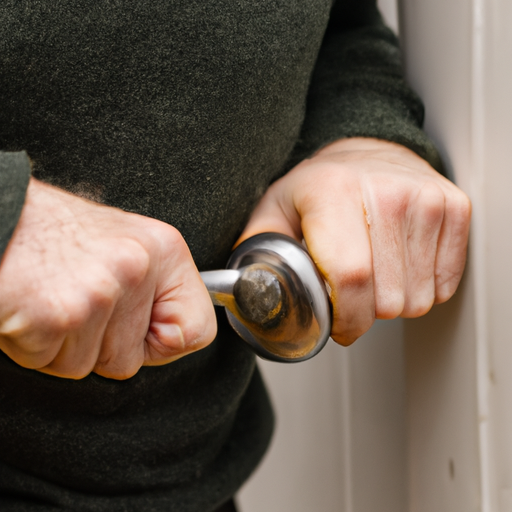
Exploring professional locksmith services
While DIY installation is possible, there are times when it is best to seek professional help. Here are a few instances where calling a locksmith is recommended.
When to seek professional help
If you encounter any difficulties during the installation process or are unsure about your own skills, it’s best to seek professional assistance. A locksmith can help you ensure a proper installation and address any challenges that may arise.
Finding a reputable locksmith
When choosing a locksmith, look for reputable professionals with proper licensing and certifications. Ask for recommendations from friends, family, or neighbors, and read online reviews to gauge the quality of their services. Hiring a reputable locksmith will give you peace of mind and ensure a successful lock installation.
Understanding the cost of professional services
The cost of professional locksmith services can vary depending on the complexity of the job and the locksmith’s expertise. Contact several locksmiths and request quotes to compare prices. Be cautious of extremely low prices, as they may indicate subpar service or questionable practices.
Benefits of hiring a locksmith
Hiring a locksmith offers several benefits. A professional locksmith has the knowledge and experience to install locks correctly, ensuring the safety and security of your property. Additionally, locksmiths can provide valuable advice on selecting the right lock and offer solutions to any security concerns you may have.
Conclusion
Installing a new lock in Charleston is an important step towards enhancing the security of your home or property. By following the outlined steps and considering the different factors involved, you can successfully install a new lock and ensure your peace of mind. Remember to research local requirements and consult with professionals when necessary. With the right lock in place, you can rest assured that your property is secure and protected.
